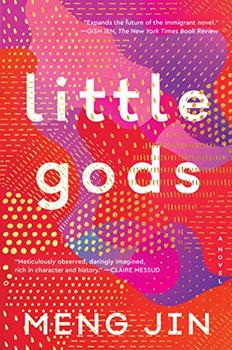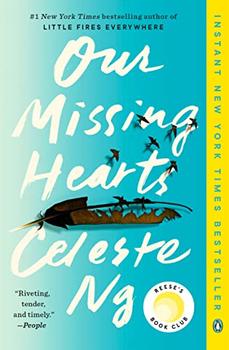Summary | Excerpt | Reading Guide | Reviews | Beyond the book | Read-Alikes | Genres & Themes | Author Bio

Combining the emotional resonance of Home Fire with the ambition and innovation of Asymmetry, a lyrical and thought-provoking debut novel that explores the complex web of grief, memory, time, physics, history, and selfhood in the immigrant experience, and the complicated bond between daughters and mothers.
On the night of June Fourth, a woman gives birth in a Beijing hospital alone. Thus begins the unraveling of Su Lan, a brilliant physicist who until this moment has successfully erased her past, fighting what she calls the mind's arrow of time.
When Su Lan dies unexpectedly seventeen years later, it is her daughter Liya who inherits the silences and contradictions of her life. Liya, who grew up in America, takes her mother's ashes to China—to her, an unknown country. In a territory inhabited by the ghosts of the living and the dead, Liya's memories are joined by those of two others: Zhu Wen, the woman last to know Su Lan before she left China, and Yongzong, the father Liya has never known. In this way a portrait of Su Lan emerges: an ambitious scientist, an ambivalent mother, and a woman whose relationship to her own past shapes and ultimately unmakes Liya's own sense of displacement.
A story of migrations literal and emotional, spanning time, space and class, Little Gods is a sharp yet expansive exploration of the aftermath of unfulfilled dreams, an immigrant story in negative that grapples with our tenuous connections to memory, history, and self.
The panoply of narrators naturally means that certain sections are more successful than others; certain voices are more compelling, certain storylines feel more relevant. But when viewed as a whole, Little Gods is like a jigsaw that falls into place as soon as you close the final page. An intricate novel about grief, loss, memory and the self as it relates to one's culture, Little Gods is a smart, emotionally charged novel that at times is nearly as elusive as Su Lan's character, but well worth the effort...continued
Full Review
 (638 words)
(638 words)
(Reviewed by Rachel Hullett).
 One of the largest public squares in the world, Tiananmen Square lies in the heart of Beijing. It's named after a monumental gate built in the 1400s leading into the Forbidden City; Tiananmen means "Gate of Heavenly Place." Despite the serene undertones of the name, however, Tiananmen Square has long been a site of political unrest and violence.
One of the largest public squares in the world, Tiananmen Square lies in the heart of Beijing. It's named after a monumental gate built in the 1400s leading into the Forbidden City; Tiananmen means "Gate of Heavenly Place." Despite the serene undertones of the name, however, Tiananmen Square has long been a site of political unrest and violence.
The most notable event in its history is a series of student protests that culminated in a brutal massacre on June 4, 1989. Earlier that same year, in April, liberal Communist Party leader Hu Yaobang died, and the streets were flooded with mourners, mostly students. This mourning soon took the form of protest—students took to the streets in order to demand political and economic reform. ...

If you liked Little Gods, try these:

by Wiz Wharton
Published 2025
Set between the last years of the "Chinese Windrush" in 1966 and Hong Kong's Handover to China in 1997, a mysterious inheritance sees a young woman from London uncovering buried secrets in her late mother's homeland in this captivating, wry debut about family, identity, and the price of belonging.

by Celeste Ng
Published 2023
From the #1 bestselling author of Little Fires Everywhere, comes one of the most highly anticipated books of the year – the inspiring new novel about a mother's unbreakable love in a world consumed by fear.